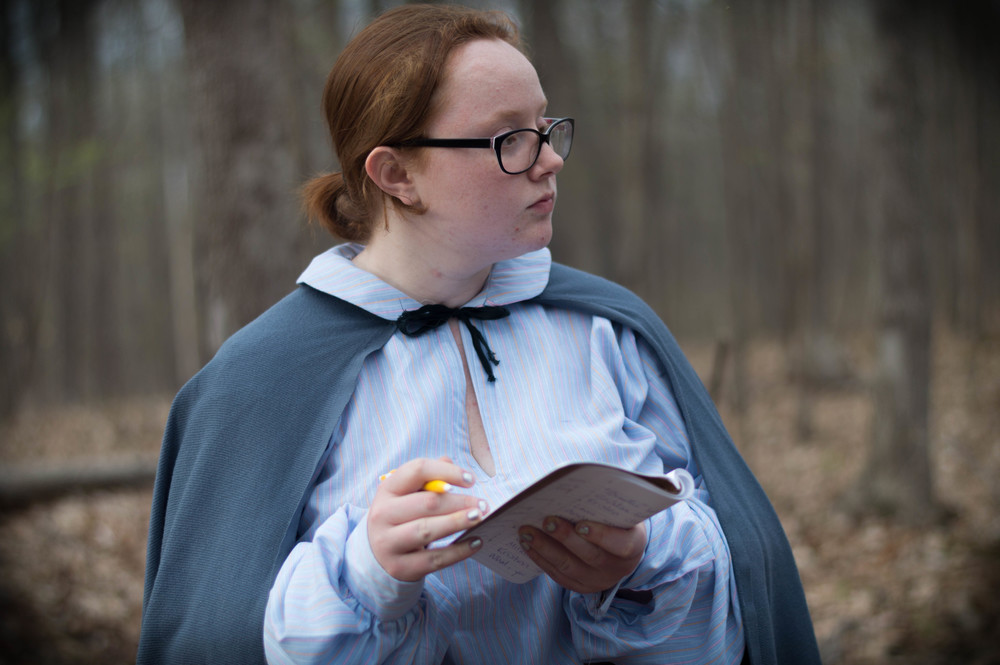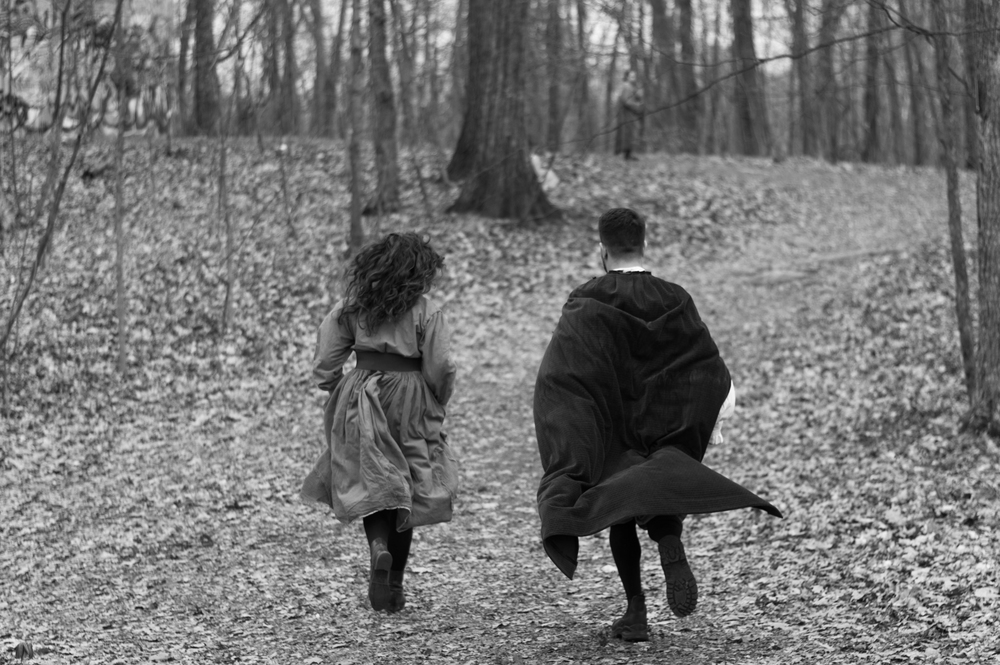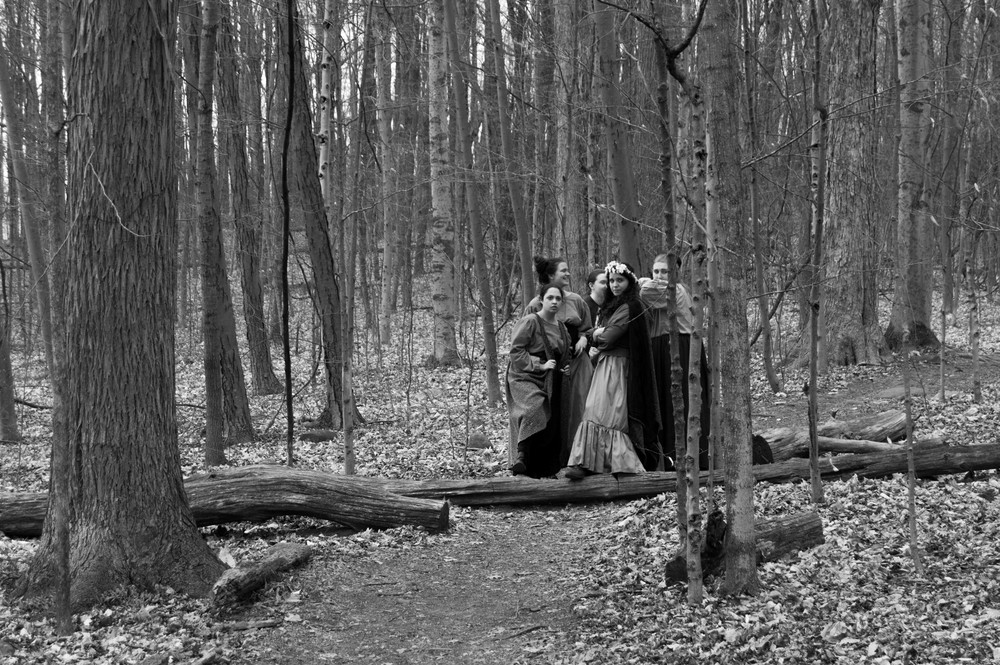BY: PHILIP MERRICK ’19

Director Sonya G. Rosen ’17. Photo: Dante Haughton ’19
I cross over the stream behind Wilson Chapel and into Northwoods, gazing around at the still-bare trees. As sun shines on my neck, I breathe in the clear spring air. We’re barely even in the woods, and already I’m struck by how free I feel. Here with nothing but fallen leaves and dirt to occupy the mind, all of the stress and busywork of school life seems far away.
“This is a good place to stop,” says Sonya G. Rosen ‘17, indicating a large fallen log. The theater major and anthropology minor adjusts her black headband and removes her sunglasses, no longer needed now that we are deep among the trees. Her red hair contrasts with her green dress, the fabric of which I am told she obtained while abroad in Indonesia last semester. We sit.
Here, an audience of twenty or so and a cast of ten will begin their journey into the forest for a production of Shakespeare’s As You Like It, this semester’s fourth and final workshop, directed by Rosen.
There are many factors, Rosen says, that made her want to direct this particular play: She wanted a comedy, she loves Shakespeare, and she needed something that could be produced on a budget of little-to-nothing (Funding for the costumes, which were designed by Leah Mirani ‘18, and Julia Kelliher ‘18, was provided by the Student Opportunity Funds). Another part of it, she tells me, was that she wanted to give students “an excuse to enjoy this wonderful place we have on campus.”
In this production, the audience wanders through the woods, a setup which Rosen claims is ideal for this particular play. “There are a bunch of scenes where characters decide, ‘Nope, I’m done with the scene,’ and they just peace out. They just leave! They speak their lines and then they just walk off into the woods. … You can’t really make that scene real on the stage.” In the woods, however, the audience can see an actor walking away long after she has made her exit.

Photo: Dante Haughton ’19
While the original play moves back and forth between the Forest of Arden and the Court, this production only includes the scenes that take place in the Forest, meaning that the audience meets characters who are already midway through the journeys they begin in Shakespeare’s text. This was mainly due to time, Rosen says: “I had to cut the play pretty significantly to fit it into the hour time limit.”
Touchstone, the play’s “jester” or “fool” character, was also cut. “I get a lot of, ‘You cut Touchstone?!’” she admits, “but most of his text is so dated and…so time-specific that he’s not worth having.” All six of Touchstone’s jokes that Rosen deemed understandable to a modern audience are now spoken by Celia (Mira Klein ’18).
This means that Celia and Rosalind (Eva Herschler ’19), as opposed to having Touchstone to protect them, are alone in the woods. “It ups the stakes a little bit because they don’t have a man to protect them, so Rosalind really does have to step up and be the man of the group—until they start to realize that gender roles don’t really exist in the forest.”

Members of the cast of “As You Like It.” Photo: Dante Haughton ’19
Rosen also chose to expand the role of Hymen (Katie Jacobsen ’18), the god of marriage. While Hymen is only supposed to appear in the last scene to conduct the wedding ceremony, in this production they are present for the whole play, directing the audience’s route and influencing the actions of the characters. (Yes, they, not he or she. It was agreed upon in rehearsal that Hymen is gender-neutral, Rosen said. The justification? “Gods don’t have gender.”)
The journey that Hymen takes the audience on is ultimately one of self-discovery. Referencing a concept in anthropology, Rosen likens the forest to a “liminal space,” a place that acts as a threshold between old and new identities in a ritual or rite of passage. “At the end of the play, we go back to society. Having learned what we need to learn from the woods and the non-structured place, we go back to the world.”
I look around at this liminal space, full of dirt and trees and open air, and for once in my busy life I don’t want to go anywhere.
***
Philip Merrick is a first-year and a staff writer for the Living Newsletter.
